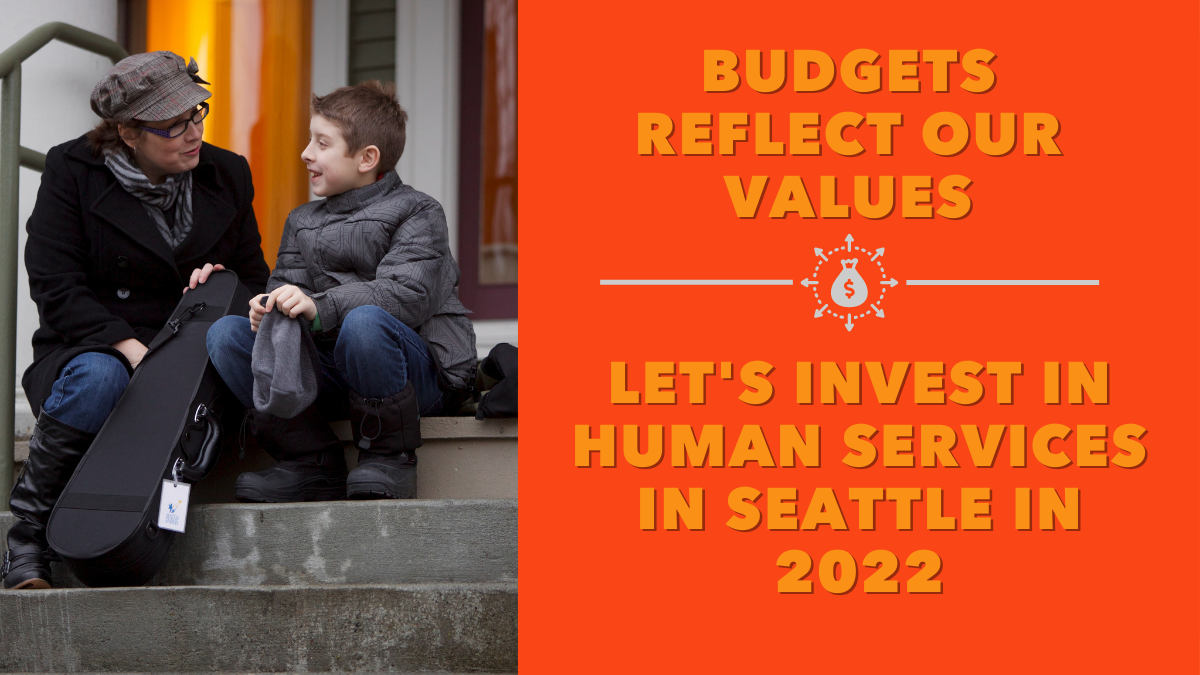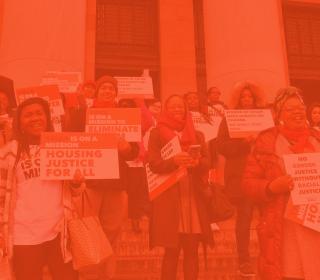What's in a budget?
At the end of each year, the City of Seattle creates a budget for the following year to distribute public funds across all of the departments and contracts that the City has. This budget is what ensures that swing sets get repaired on playgrounds, homelessness service providers get paid, and potholes get filled. The budget includes funding for ongoing expenses for programs as well as one-time projects like building a new bike lane.
For a city as large as Seattle, the budget can be a long document, filled with different programs and jargon that make it difficult and uninviting to read. But the budget isn’t a complex concept; we want our tax dollars to be spent advancing the goals and values we have for our city. This is why at YWCA we say that budgets are moral documents. Properly implemented, they reflect our values, by putting our money where our mouth is in supporting the things and people we care about.

The budget is first proposed by the Mayor, is then amended and passed by the City Council before finally being approved or vetoed by the Mayor. Mayor Jenny Durkan’s proposed 2022 budget has already been released, and the City Council is now adding, subtracting, and shifting around that budget through amendments.
An Equitable Recovery in 2022
Your voice can shape the City's budget for next year and engaging in the process is a great way to stay civically active this year beyond voting in the November election.
The Seattle Human Services Coalition, which is made of up of the nonprofit agencies that deliver Seattle’s critical human services, including YWCA, is calling on the City Councilmembers to do three things in their amendments:
- Keep the 2.4% inflation adjustment on human services contracts included in the Mayor’s proposed budget to keep critical homelessness response, mental health, and childcare programs open.
- Fund the new One Call crisis and referral system included in the mayor’s proposed budget to provide alternative unarmed crisis responses for people needing help.
- Fund and plan the Pay Equity Analysis needed to stop underpaying human services workers and ensure providers can retain and attract staff during this crisis.
These demands are key to laying the foundation for an equitable recovery from COVID-19 for all Seattle residents, regardless of race or zip code. You can join YWCA and the Seattle Human Services Coalition by contacting your City Councilmembers to support human services in 2022 right here:

Eric Bronson is the Digital Advocacy and Engagement Manager at YWCA. He manages the Firesteel blog in addition to its social media streams and action initiatives. A graduate of Oberlin College, Eric focuses on the intersection of race and gender within the American political economy.
We tell the stories of those with lived experiences of racism and sexism and invite supporters to take concrete actions to correct the root causes of disparity in our communities.


